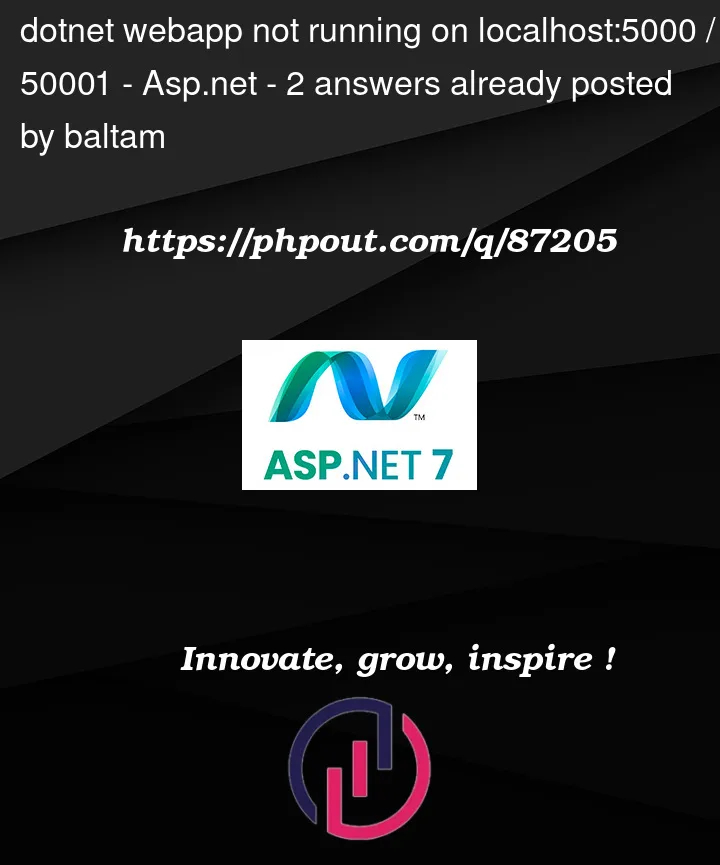I’m trying to run a dotnet webapp project in visual studio. When I run pops up a powershell window and it’s saying that my application is running on https://localhost:5000 or localhost:5001. But when I try to access it appears: this localhost page can’t be found. browser screen-shot




2
Answers
I had the same problem like you.
Probably you have the problems with certificate.
So try to run this PowerShell script for that ports :
I hope that will work for you too!
As Charles Mager commented above
this answer worked for me.